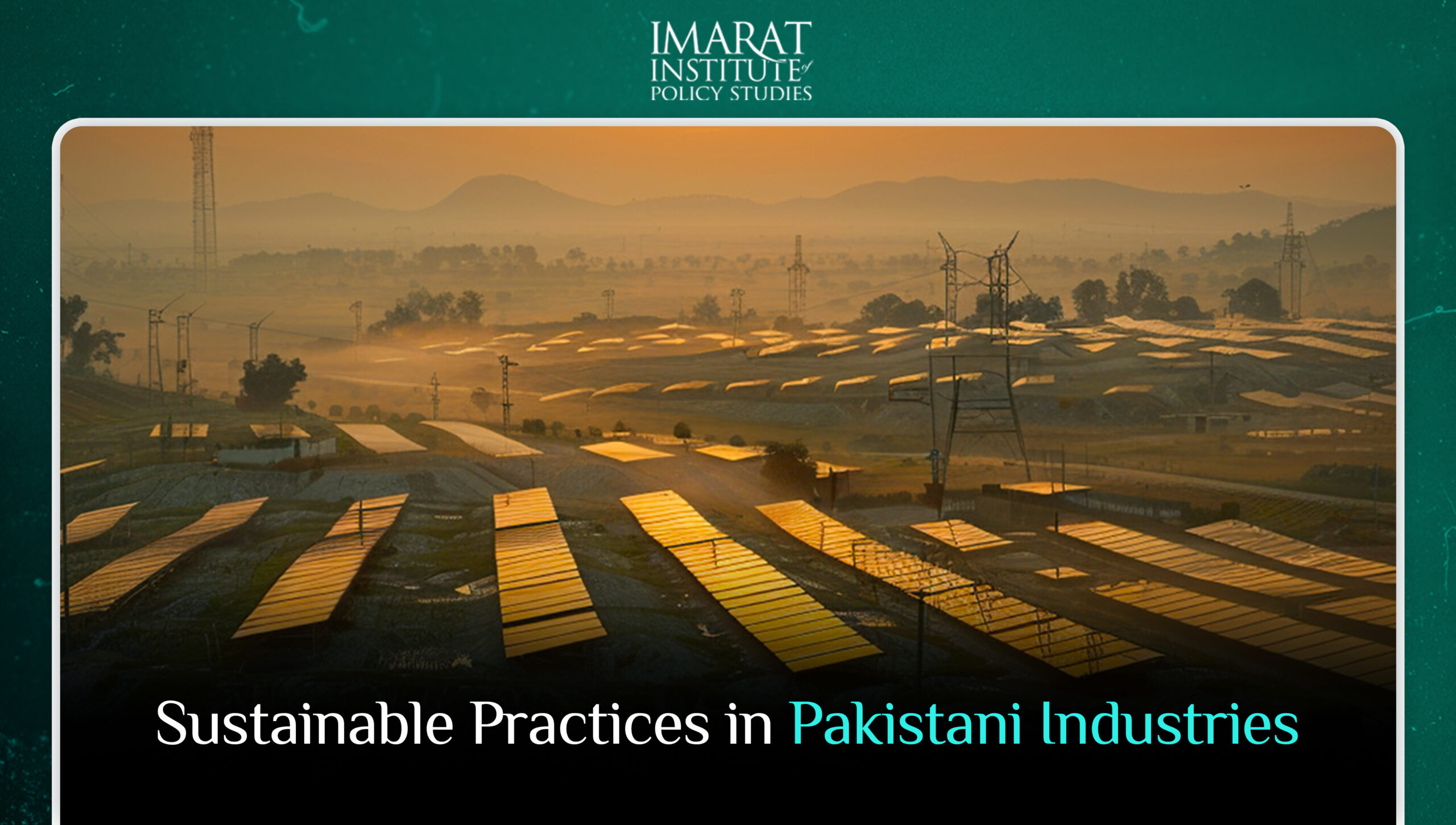Pakistan, with its burgeoning industrial sector, is navigating the delicate balance between economic growth and environmental stewardship. The imperative for sustainable practices has never been more pressing. This blog aims to delve into the current state of sustainable initiatives within Pakistani industries, exploring the challenges faced, advancements made, and the collective journey towards a greener and more sustainable future.
Challenges in Pakistani Industries
Pakistani industries grapple with multifaceted challenges that pose threats to both economic progress and environmental sustainability. Energy shortages, water scarcity, and inadequate waste management systems are prominent issues. The rapid pace of industrialization, while fostering economic growth, has concurrently led to increased environmental degradation. Recognizing and addressing these challenges is paramount for the successful implementation of sustainable practices.
Renewable Energy Integration
A notable shift is underway in Pakistani industries towards the integration of renewable energy sources. Solar and wind power projects are gaining traction, driven by a combination of government incentives, technological advancements, and a growing awareness of the environmental impact of conventional energy sources. This transition not only mitigates the carbon footprint but also contributes to energy security.
Resource Efficiency and Conservation
Efficient resource utilization stands as a cornerstone of sustainable practices. Pakistani industries are actively adopting measures to minimize waste generation, optimize water usage, and enhance overall energy efficiency. Technologies like waste heat recovery systems and water recycling processes are becoming integral to various sectors, exemplifying a commitment to resource conservation.
Green Certification and Standards
Acknowledging the need for standardized sustainable practices, many industries are pursuing green certifications such as ISO 14001 for environmental management. These certifications not only serve as badges of environmental responsibility but also enhance the market competitiveness and reputation of businesses, pushing them towards higher environmental standards.
Corporate Social Responsibility (CSR)
The concept of Corporate Social Responsibility (CSR) is gaining prominence in Pakistani industries. Beyond profit-centric approaches, companies are increasingly investing in initiatives that benefit society and the environment. Tree plantation drives, community development projects, and education programs are becoming integral components of CSR strategies, aligning businesses with the broader goals of sustainable development.
Circular Economy Initiatives
Shifting towards a circular economy is imperative for long-term sustainability. Pakistani industries are exploring strategies to minimize waste through the adoption of circular principles. Reusing and recycling materials not only reduces environmental impact but also opens up new economic opportunities, fostering a more sustainable and responsible industrial ecosystem.
Government Initiatives and Policies
The Pakistani government has recognized the urgency of promoting sustainable practices in industries. Various policies and incentives are being introduced to encourage businesses to adopt environmentally friendly measures. Tax benefits for sustainable practices and penalties for non-compliance with environmental regulations are shaping the regulatory landscape, compelling industries to align with sustainable norms.
Awareness and Education
Creating awareness about sustainable practices is a crucial step in their widespread adoption. Educational programs and workshops are being conducted to enlighten industry professionals about the benefits of sustainable practices. The dissemination of knowledge regarding the long-term positive impact on the environment and business resilience plays a pivotal role in fostering a culture of sustainability.
Collaboration and Partnerships
The collaborative spirit between industries, governmental bodies, and non-governmental organizations (NGOs) is instrumental in driving sustainable practices. Partnerships facilitate the exchange of knowledge, technology, and resources, accelerating the transition towards a more sustainable industrial landscape. Collective efforts amplify the impact of sustainable initiatives, emphasizing the interconnectedness of stakeholders in achieving common goals.
Future Outlook
The momentum towards sustainable practices in Pakistani industries is promising. As awareness grows, technological advancements continue, and policies become more stringent, the nation is poised for a greener and more sustainable future. The collective effort of industries, government bodies, and the community is essential to achieving and maintaining this positive trajectory. The continued commitment to sustainable practices not only safeguards the environment but also ensures the resilience and long-term success of Pakistani industries in a dynamic global landscape.
Conclusion
In conclusion, the journey towards sustainability in Pakistani industries is marked by concerted efforts, technological advancements, and policy reforms. Challenges persist, but the growing awareness and collaborative initiatives from various stakeholders indicate a positive shift towards a more sustainable industrial landscape in Pakistan. Embracing sustainable practices not only contributes to environmental conservation but also ensures the resilience and long-term success of industries in a rapidly evolving global scenario.
This article is written by Radma Nouman. Radma is a research analyst at the Imarat Institute of Policy Studies (IIPS).



Leave a Reply